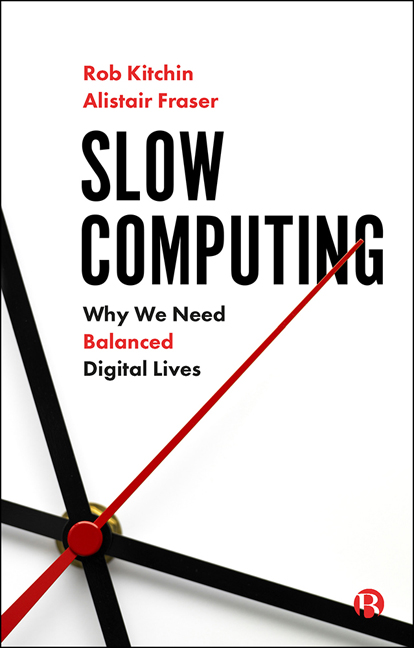
-
Select format
-
- Publisher:
- Bristol University Press
- Publication date:
- 12 March 2021
- 24 September 2020
- ISBN:
- 9781529211276
- 9781529211269
- 9781529211283
- Dimensions:
- Weight & Pages:
- Dimensions:
- Weight & Pages:
You may already have access via personal or institutional login
Book description
Digital technologies should be making life easier. And to a large degree they are, transforming everyday tasks of work, consumption, communication, travel and play. But they are also accelerating and fragmenting our lives affecting our well-being and exposing us to extensive data extraction and profiling that helps determine our life chances. Initially, the COVID-19 pandemic lockdown seemed to create new opportunities for people to practice 'slow computing', but it quickly became clear that it was as difficult, if not more so, than during normal times. Is it then possible to experience the joy and benefits of computing, but to do so in a way that asserts individual and collective autonomy over our time and data? Drawing on the ideas of the 'slow movement', Slow Computing sets out numerous practical and political means to take back control and counter the more pernicious effects of living digital lives.
Contents
Metrics
Altmetric attention score
Full text views
Full text views help Loading metrics...
Loading metrics...
* Views captured on Cambridge Core between #date#. This data will be updated every 24 hours.
Usage data cannot currently be displayed.
Accessibility standard: Unknown
Why this information is here
This section outlines the accessibility features of this content - including support for screen readers, full keyboard navigation and high-contrast display options. This may not be relevant for you.
Accessibility Information
Accessibility compliance for the PDF of this book is currently unknown and may be updated in the future.


